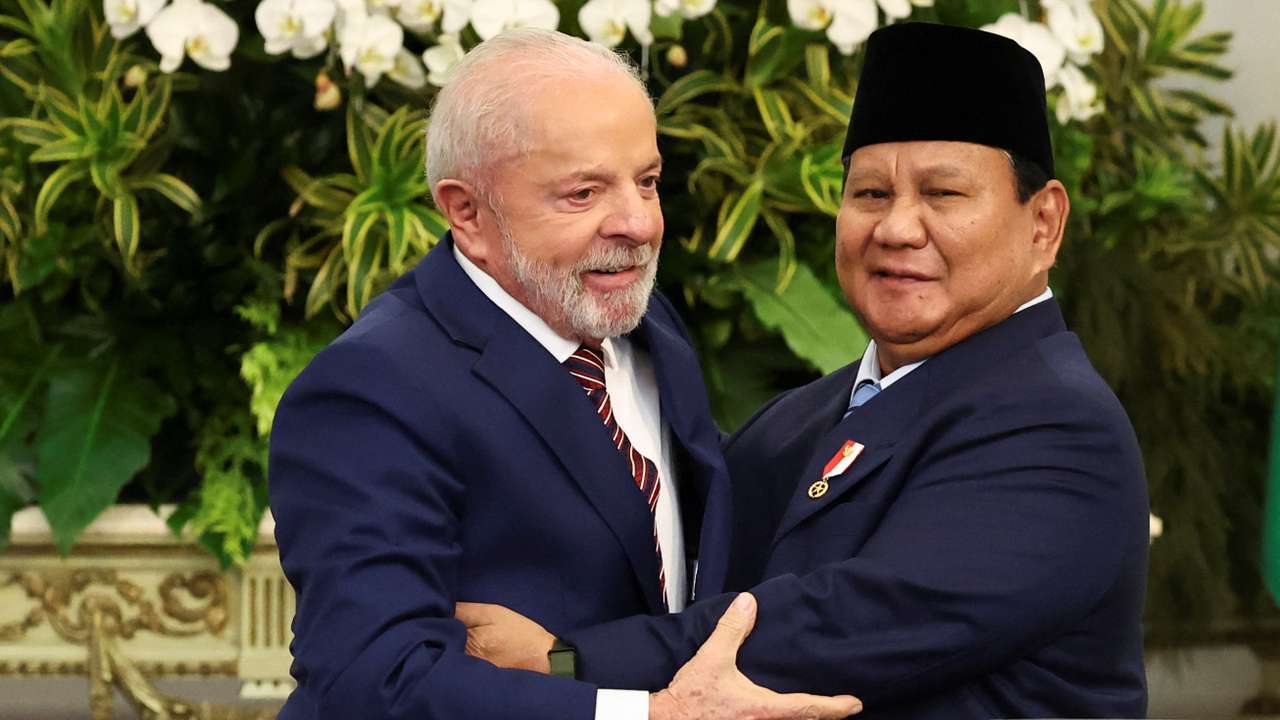Indonesia Roundup: New Brazil pacts, nuclear power, motorcycle taxi regulation

Brazil, Indonesia ink 8 cooperation deals during Lula’s visit
Indonesia and Brazil signed eight memorandums of understanding (MoUs) in Jakarta on Thursday, witnessed by Presidents Prabowo Subianto and Luiz Inácio Lula da Silva. The agreements cover cooperation in energy, mining, science, technology, sanitation, phytosanitary standards, and statistics. Indonesia’s sovereign wealth fund Danantara signed an MoU with Brazilian food giant JBS, while PLN, Pertamina, and Kadin sealed separate deals with Brazilian partners. Energy Minister Bahlil Lahadalia said the two countries would collaborate on renewable energy and bioethanol development. Lula’s October 22-24 visit marked his first trip to Indonesia since 2008.
Nuclear power seen as solution to meet 2060 net-zero goal
Indonesia plans to develop nuclear power as part of its strategy to achieve net-zero emissions by 2060, Deputy Energy Minister Yuliot announced at the Bapeten Executive Meeting on October 27. He said nuclear energy is now considered a “strategic option” for national energy security, no longer a last resort. The government targets its first nuclear plant by 2032 and 44 GW of capacity by 2060. Nuclear is expected to make up 5% of the energy mix by 2030 and 11% by 2060. Yuliot stressed public safety and strong oversight amid high costs and construction challenges.
Indonesia to deploy AI for real-time customs oversight
Finance Minister Purbaya Yudhi Sadewa announced plans to develop an artificial intelligence (AI) system to enhance real-time monitoring of customs and excise operations. Following a surprise inspection on Wednesday, he said the current system remains insufficient to detect violations like under-invoicing. Within three months, a more advanced AI platform will be built to strengthen oversight and curb illegal trade. Sadewa also aims to transform the National Single Window agency into an IT-based intelligence center for export-import monitoring. He said the integration of AI across ministry databases will improve efficiency, transparency, and state revenue collection.
New regulation eyes stronger protections for ojol drivers
Indonesia’s upcoming presidential regulation on app-based motorcycle taxis (ojol) will prioritise driver protection, Manpower Minister Yassierli said on Tuesday. Speaking in Jakarta, he emphasised that the ministry’s main concern is ensuring drivers’ access to social security, including workplace accident and death insurance. The regulation aims to promote transparency and fairness between drivers and ride-hailing companies. State Secretary Minister Prasetyo Hadi said discussions are in the final stage, with only minor technical issues remaining. The government targets completion of the regulation by year-end, following President Prabowo Subianto’s directive to strengthen driver welfare.
Indonesia’s free meals program reaches 39.2 million beneficiaries
Indonesia’s Free Nutritious Meals (MBG) program has provided meals to 39.2 million people nationwide, with spending reaching Rp35 trillion (US$2.1 billion), the National Nutrition Agency (BGN) said. BGN chief Dadan Hindayana reported that 13,347 kitchens, known as Nutritional Fulfillment Service Units, are now operating across the country. The government expects to reach 82.9 million beneficiaries by year-end. A new presidential regulation will establish the MBG Coordination Team, led by Food Minister Zulkifli Hasan, to oversee implementation and governance. Launched in January, the MBG program is a key initiative of President Prabowo Subianto to boost national nutrition.
This story is written and edited by the Global South World team, you can contact us here.